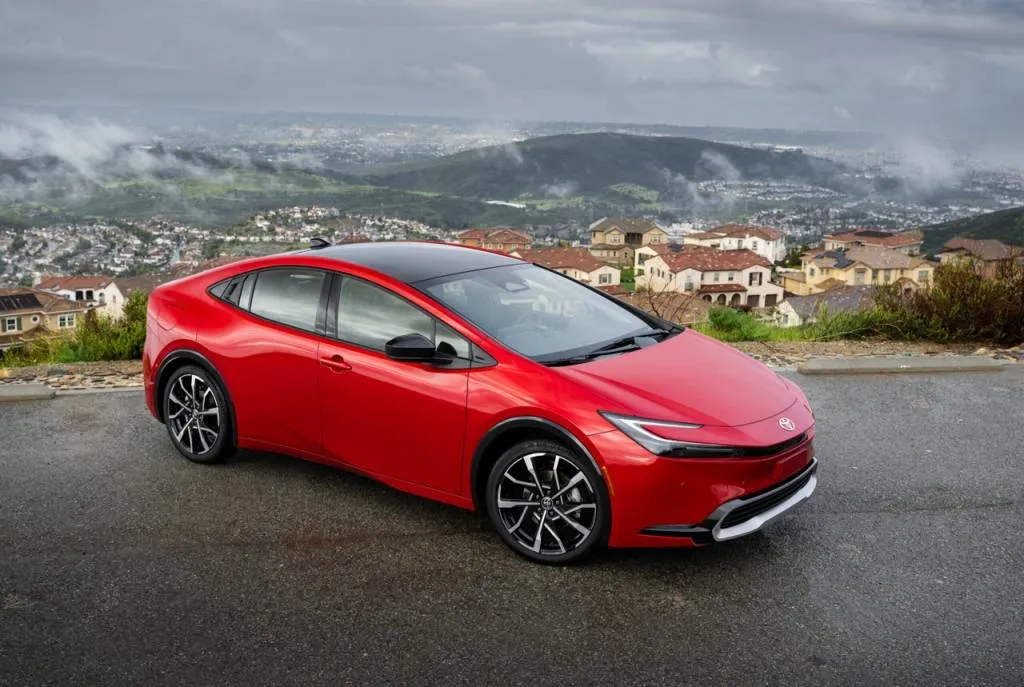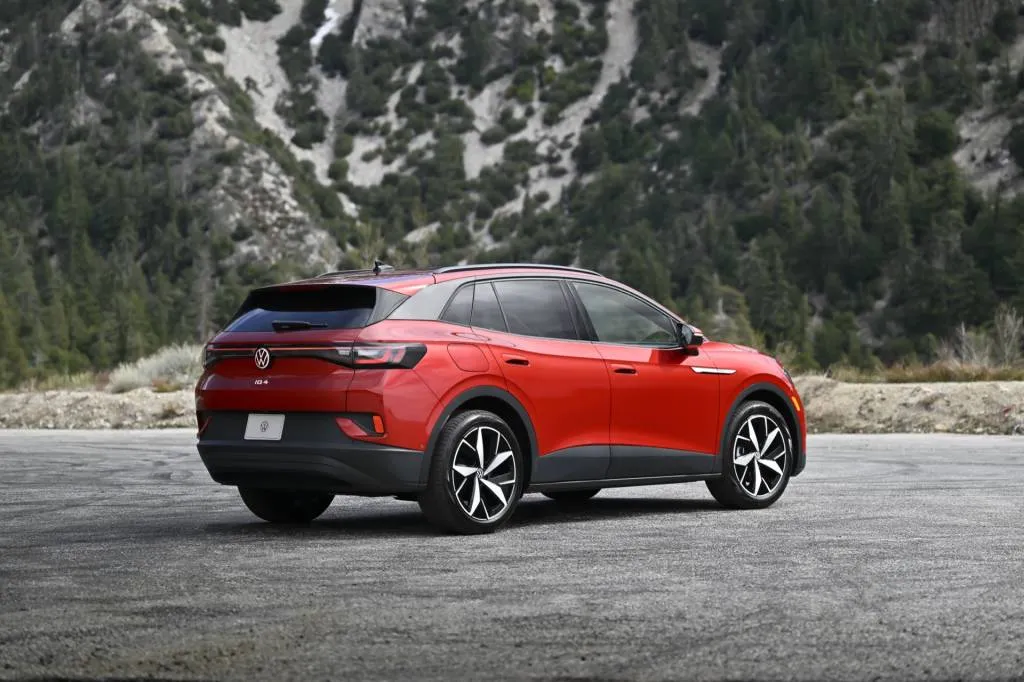The federal authorities on Friday revealed automobile effectivity requirements for 2027-2031 that enhance the fleet gas effectivity of latest vehicles and vehicles—barely.
The ultimate guidelines for Company Common Gas Financial system (CAFE), introduced Friday by the Division of Transportation’s Nationwide Freeway Site visitors Security Administration (NHTSA), set the prescribed enchancment at 2% yearly for passenger vehicles and a couple of% yearly for gentle vehicles for these mannequin years.
That’s down considerably from the 4% annual improve initially proposed for vehicles and SUVs, that are already held to a decrease commonplace and have change into the dominant portion of U.S. automobile gross sales. Because the Worldwide Vitality Company final week underscored, SUVs emit about 20% extra CO2 than vehicles, whether or not they’re electrical or not.
Contemplating these particulars, the EPA calculated that its remaining rule would require 56% EVs by 2032, plus at the very least 13% plug-in hybrids—and since then, GM has been among the many automakers reviving plug-in hybrids, maybe leading to a slower EV rollout. Below that earlier state of affairs that was extra aggressive on environment friendly gentle vehicles, it noticed 67% EVs by 2032.
Softer on vehicles, fewer EVs, and about 38 mpg by 2032
The easing of all of it would imply a real-world fleet effectivity common of about 38 mpg, in accordance with the company—approach down from 43.5 mpg underneath the company’s unique CAFE proposal made in July 2023.
The 2024-2026 CAFE guidelines, finalized in 2022, name for aggressive will increase of 8% in 2024 and 2025, and 10% in 2026, so automakers will primarily “have it simple” after reaching these 2026 targets. By the top of that interval, in 2026, it’s already been projected that the real-world fleet common shall be round 35 mpg, versus right this moment’s fleetwide common of about 29 mpg.

2024 Toyota Prius
These fleet guidelines are one facet of U.S. automobile effectivity and emissions requirements, typically set in coordination between these completely different businesses. They comply with EPA guidelines set in March, and people maintain to a well-recognized framework, breaking automobile targets down into designated “footprints,” in addition to passenger vehicles versus gentle vehicles.
These EPA guidelines proceed to keep away from a direct EV mandate and comply with a slower ramp-up than what was initially proposed, however as set they’re largely thought of to be a victory for public well being.
EVs rely as a 300-mpg fuel automobile till 2027
On the fleet facet of assembly these air pollution and effectivity guidelines, automakers nonetheless already bought an enormous break that can assist them meet these a lot stronger 2024-2027 requirements, when the Division of Vitality in March revealed that it’ll take three further years to part in a revised Petroleum Equivalency Issue (PEF)—governing how EVs are taken under consideration in fleet calculations subsequent to gasoline fashions.

GMC Hummer EV
Calculated out, that equates a battery electrical automobile with a gasoline-powered automobile that will get about 300 miles per gallon—permitting automakers till then to successfully produce a whole lot extra gasoline autos for each one EV, and incentivizing PHEVs. After that three-year phase-in, beginning in 2027, EVs will solely rely like a 120-mpg gasoline mannequin, a lot decreasing the variety of low-mpg fashions that every EV permits.
Whereas the EPA requirements could also be crucial constructing blocks, the CAFE requirements themselves are the step that in the end determines the combo of autos that shall be offered and emphasised by means of this time interval—and it arguably provides the auto trade extra of an incentive to maintain sliding its product combine towards heavier, much less environment friendly SUVs slightly than passenger vehicles.
Because the Environmental Protection Fund notes, the regulation requires NHTSA to set requirements for the “most possible” common gas financial system ranges that automakers can obtain in a given mannequin 12 months, not all environmental and client teams noticed these guidelines as assembly that most. The buyer group Client Stories known as them underwhelming and stated that the NHTSA requirements “solely examine the field on its authorized requirement.”

2024 Volkswagen ID.4
Will automakers make extra EVs than they should?
John Bozzella, the president and CEO of the Alliance for Automotive Innovation, representing automaker pursuits, applauded how the NHTSA rule works with the EPA one, and instructed S&P World that “it seems just like the left hand knew what the precise hand was doing.”
What this typically optimistic comment in regards to the guidelines and trendlines may imply, primarily, is that automakers are feeling assured that this interpretation will allow them to make extra high-profit gasoline-powered vehicles with out paying fines.
In an period when one other wave of the precise EVs—maybe aided by affordability and battery breakthroughs—may catch on loads faster, there’s an opportunity for automakers to show regulators’ trendlines incorrect.


